- 5059 Aluminum Sheet Specifications
- 5059 Aluminum Alloy Data
- Typical 5059 Aluminum Plate
- 5059 Aluminum Plate Applications
As a 5-series aluminum-magnesium alloy plate, 5059 aluminum plate has high plasticity and corrosion resistance, and high degree of processing and forming. It is widely used in ships, tankers, etc.
- Have a lower density
- Higher tensile strength
- Higher than some low carbon mild steels
- Good welding performance
Due to its characteristics, 5059 is an excellent match for yachts and is often used as a hull material for small aluminum boats or large yachts.
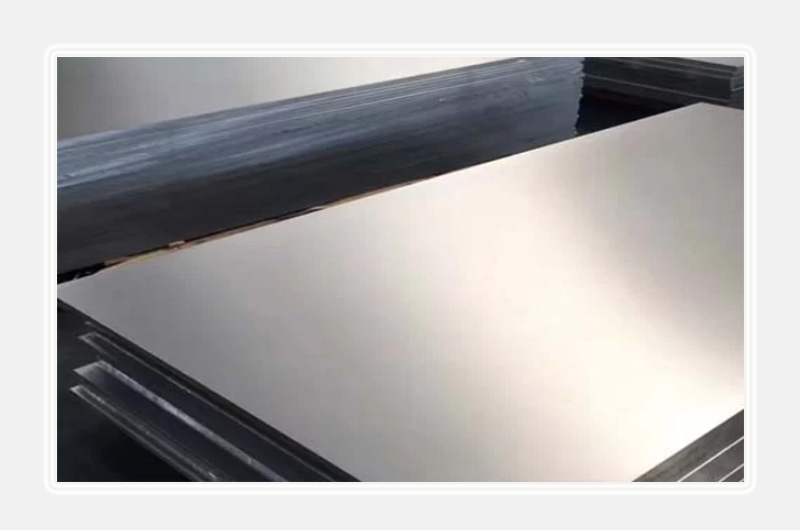
Since heat treatment does not strongly affect strength, 5059 can be easily welded and retains most of its mechanical strength. After testing, 5059 can also be used for vehicle armor, cryogenic propellant tanks for rocket vehicles.
5059 Aluminum Sheet Specifications
5059 aluminum alloy is a high strength, corrosion resistant alloy commonly used in aerospace and marine applications.
- Thickness : 0.016" (0.4mm) to 0.25" (6.4mm)
- Width : 12" (305mm) to 60" (1524mm)
- Length : May vary according to the specific requirements of the application.
Standard
ASTM B209 : Standard Specification for Aluminum and Aluminum Alloy Sheet and Plate
Equivalent Specification
- AMS 4071 : Aluminum Alloy Sheet and Plate 5.6Zn - 2.5Mg - 1.6Cu - 0.23Cr (5059 O) Annealed
- AMS 4073 : Aluminum Alloy Sheet and Plate 5.6Zn - 2.5Mg - 1.6Cu - 0.23Cr (5059 H112)
The mechanical properties of 5059 aluminum alloy sheets depend on the tempering or state of the material, which can be summarized as follows :
- 5059 O (Annealed) : Ultimate Tensile Strength 30 ksi (207 MPa), Yield Strength 13 ksi (90 MPa)
- 5059 H112 : Ultimate Tensile Strength 45 ksi (310 MPa), Yield Strength 30 ksi (207 MPa)
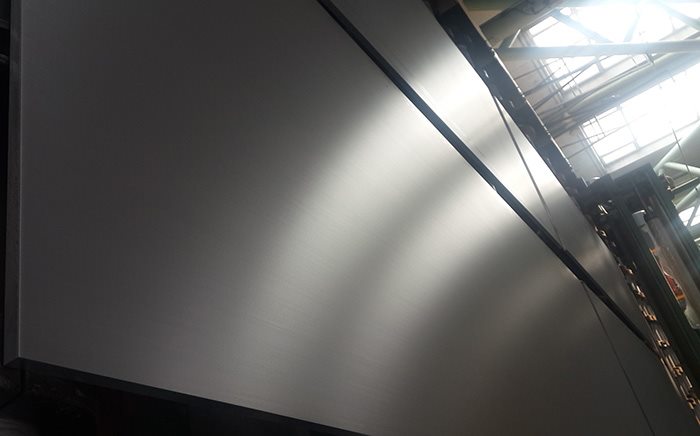
5059 Aluminum Alloy Data
5059 Aluminum Properties
- Density : 5059 has a density of 2, 660 kg/m3 (0.096 lb/cu in)
- Corrosion Resistance : Due to the presence of magnesium in the alloy, 5059 Aluminum has excellent corrosion resistance, especially in marine environments.
- Strength : 5059 aluminum has a tensile strength ranging from 190 to 240 MPa, depending on temper.
- Weldability : 5059 aluminum adopts traditional welding methods, such as gas tungsten arc welding and gas metal arc welding, and has good weldability.
- Heat Treatability : 5059 aluminum can be heat treated to increase its strength and hardness.
- Machinability : 5059 aluminum has good machinability, but care must be taken to avoid overheating and work hardening of the material.
- Conductivity : The conductivity of aluminum 5059 is about 34% of that of copper.
5059 Aluminum Plate Mechanical Properties
The mechanical properties of 5059 aluminum will vary depending on the degree of tempering, cold working or heat treatment of the material. Below are some typical values at various temperatures :
The mechanical properties of 5059 vary significantly with hardening and temperature.
–O hardeningUnhardened 5059 has a yield strength of 160 MPa (23 ksi) and ultimate tensile strength of 330 MPa (48 ksi) from −28 to 100 °C (−18 to 212 °F). At cryogenic temperatures it is slightly stronger; above 100 °C (212 °F) its strength is reduced.
Elongation, the strain before material failure, is 24% at room temperature.
–H131 hardeningyield strength of 39.0 ksi (269 MPa), ultimate tensile strength of 52.9 ksi (365 MPa). Produced by Aleris under the AluStar brand. [2]
–H136 hardeningyield strength of 39.0 ksi (269 MPa), ultimate tensile strength of 52.1 ksi (359 MPa). Produced by Aleris under the AluStar brand.
–H321 hardeningH321 strain hardened 5059, with properties measured at 20 °C (68 °F), has yield strength of 270 MPa (39 ksi), ultimate tensile strength of 370 MPa (54 ksi), and elongation of 10%.
Note that tensile strength and yield strength increase with cold working and stability, while elongation decreases. The specific mechanical properties of 5059 aluminum can also be influenced by factors such as grain size, impurity content and the manufacturing process used to produce the material. 5059 aluminum has good strength and ductility, making it suitable for a variety of applications in industries such as marine and aerospace engineering.
Fabrication
Aluminium / aluminum 5059 alloy can be welded using arc welding, MIG or TIG welding processes.
5059 Aluminum Plate Physical Properties
| Properties | Metric | Imperial |
|---|---|---|
| Density | 2.66 g/cm³ | 0.0961 lb/in³ |
5059 Aluminum Plate Chemical Composition
| Chemical Element | Weight (%) |
|---|---|
| Aluminum, Al | 89.8 - 94 |
| Magnesium, Mg | 5-6 |
| Manganese, Mn | 0.60-1.2 |
| Iron, Fe | ≤ 0.50 |
| Silicon, Si | ≤ 0.45 |
| Zinc, Zn | 0.40 - 0.90 |
| Chromium, Cr | ≤ 0.25 |
| Copper, Cu | ≤ 0.25 |
| Titanium, Ti | ≤ 0.20 |
| Zirconium, Zr | 0.050 - 0.25 |
| Other (each) | ≤ 0.050 |
| Other (total) | ≤ 0.15 |
Typical 5059 Aluminum Plate
5059 aluminum alloy is known for its outstanding strength and corrosion resistance, making it a popular choice for aerospace and marine applications. Alloys can be hardened by various tempering processes, resulting in varying degrees of strength and toughness. The most common tempering conditions for 5059 aluminum alloy are O, H131, H136, and H321.
5059 O Aluminum Plate
O This is the softest and most ductile temper condition for 5059 aluminum alloy. The material is annealed to relieve any residual stress and achieve maximum ductility.
5059 O has good formability and weldability. This temper is often used in applications requiring formability and low stress, such as sheet metal forming, deep drawing and spinning.
5059 H131 Aluminum Plate
H131 This tempering condition consists of a stress relief anneal followed by a stabilization treatment to improve strength and toughness.
- Features : H131 provides higher strength and hardness than the annealed state, and has good toughness and stress corrosion cracking resistance.
- Applications : Typically used in applications requiring high strength and toughness, such as structural components in the aerospace and defense industries, such as aircraft wings and fuselage frames.
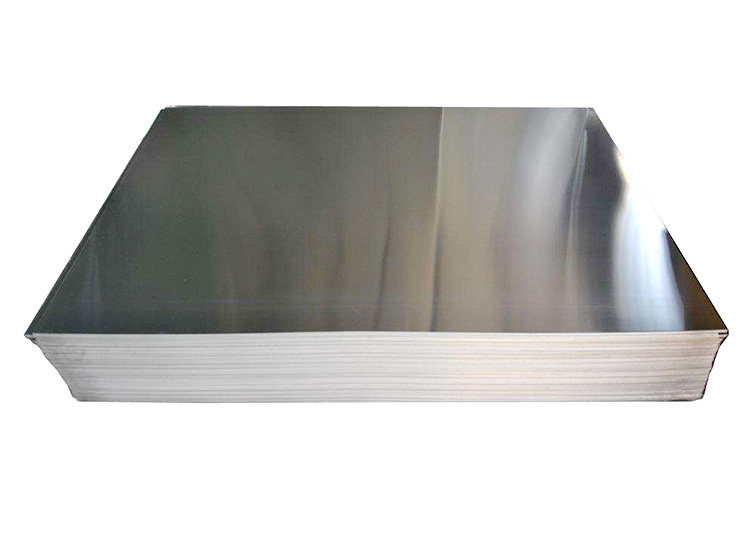
5059 H136 Aluminum Plate
This tempered condition of H136 involves further strain hardening and stabilization than H131, resulting in higher strength and hardness.
- Features : H136 has good toughness and resistance to stress corrosion cracking.
- Application : Typically used in high stress applications such as aircraft wing skins and structural components.
5059 H321 Aluminum Plate
H321 This tempering condition involves a cold working process to increase the strength and toughness of the material, followed by a stabilization treatment.
- Features : H321 has high strength and hardness, good toughness and resistance to stress corrosion cracking.
- Properties : Typically used in marine applications requiring high strength and corrosion resistance, such as hulls and decks.
The tempering conditions selected for 5059 aluminum alloy depend on the specific application requirements and the desired balance of strength, toughness and ductility.
5059 Aluminum Plate Applications
5059 aluminum alloy is commonly used in marine and tanker applications due to its excellent corrosion resistance and high strength-to-weight ratio.
5059-H321 Marine Grade Aluminum Plate
5059 marine aluminum plate is commonly used in the construction of ships and other marine structures, the alloy's high strength and corrosion resistance make it ideal for use in harsh marine environments.
- Advantages : high strength and good toughness, excellent corrosion resistance, can withstand the influence of salt water, moisture and corrosive chemicals.
- Applications : Hulls, decks and superstructures, ship panels, bulkheads, frames and other structural components.
In the construction of military ships and offshore drilling platforms, the high strength, durability and corrosion resistance of 5059-H321 aluminum alloy are critical to the safety and performance of these structures.
Click to learn more aboutMarine Grage Aluminum Plate
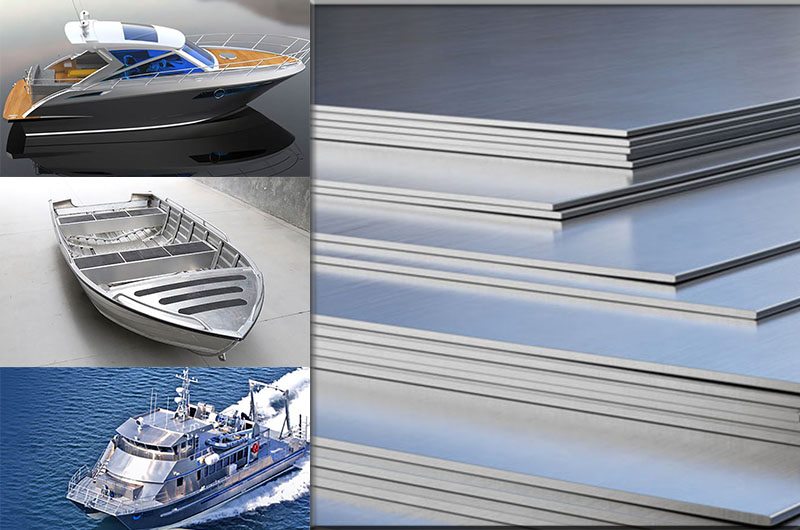
5059 H32 Tanker Aluminum Plate
5059 tanker aluminum plate is commonly used in the construction of tankers and other carriers that carry corrosive or hazardous materials. The alloy's high strength and corrosion resistance make it ideal for these applications.
- Advantages : With good toughness, high strength and corrosion resistance, it can protect the contents of the tank from external contamination and prevent leakage or rupture.
- Advantages : 5059 H32 tank truck aluminum plate is commonly used in the construction of shipping containers such as tank trucks, trailers and other vehicles that transport corrosive or hazardous materials.
- Application Specific Parts : May include tank walls, bottom and roof.
In the construction of chemical or oil tankers, the high strength and corrosion resistance of 5059-H32 aluminum alloy are essential for the safe and reliable transportation of these materials.
Click to learn more aboutAluminum Plate for Tank Truck
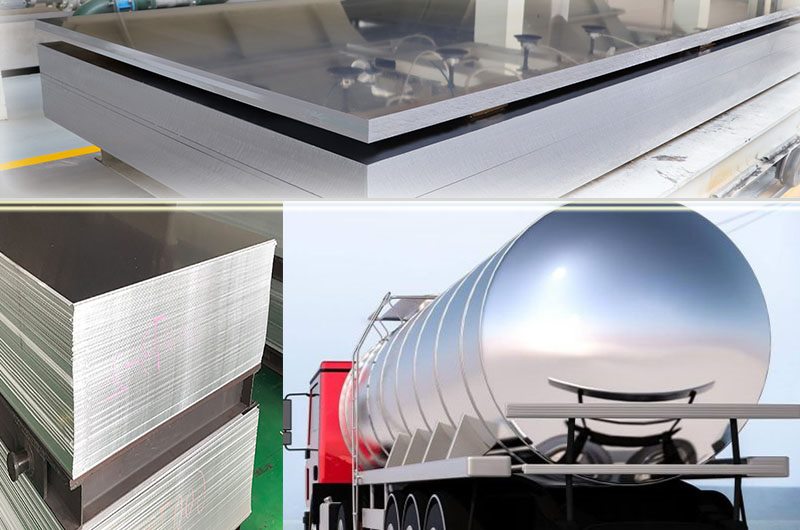
5059 aluminum alloy is used in marine and tanker applications for its excellent corrosion resistance and high strength-to-weight ratio, which makes it ideal for use in harsh environments where other materials could degrade or fail. Additionally, the alloy's excellent weldability and formability make it easy to fabricate and customize to meet specific application requirements.
Note that specific application and performance requirements for each application may vary due to specific design and operating conditions. It is important to refer to appropriate standards and guidelines when specifying and designing aluminum alloys for marine and tanker applications.
